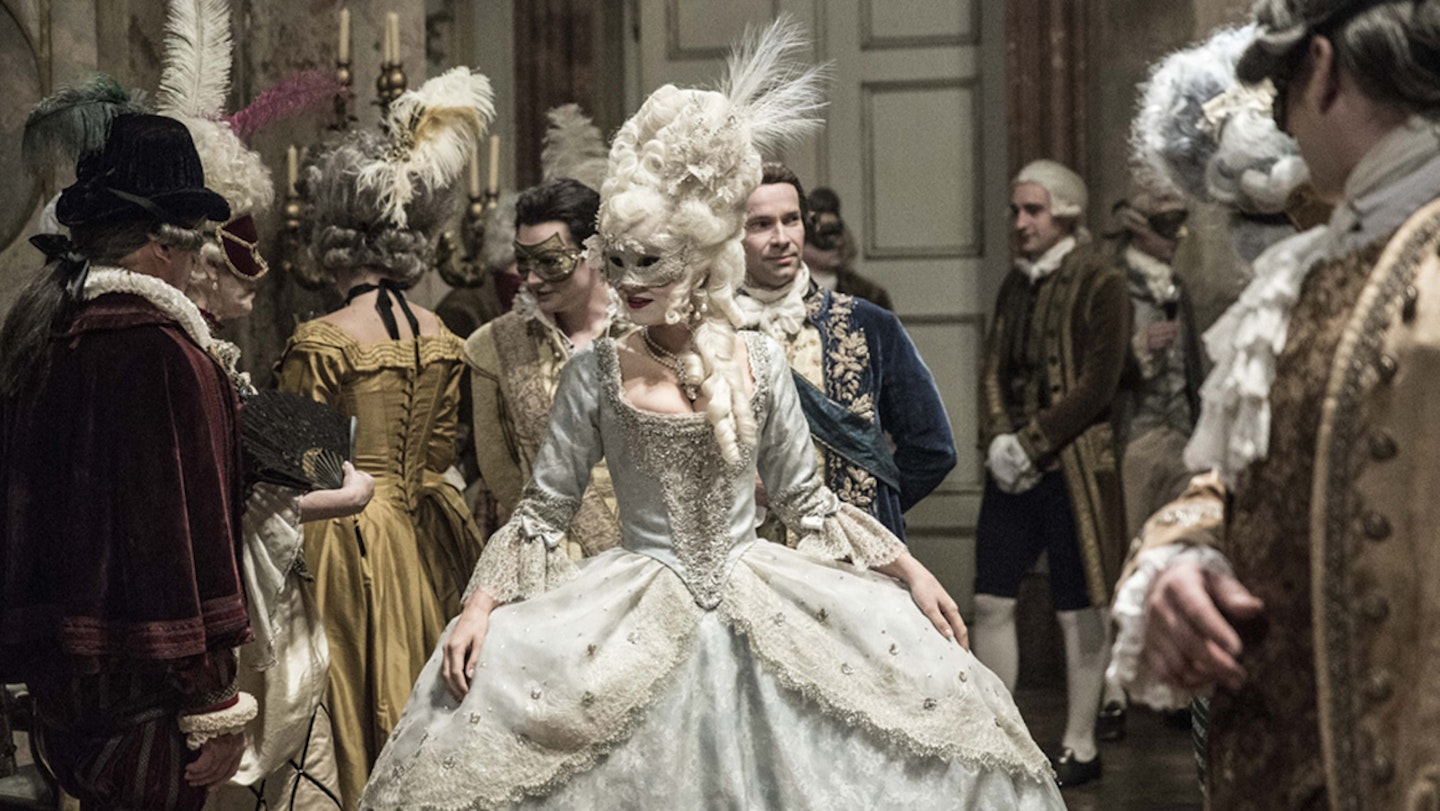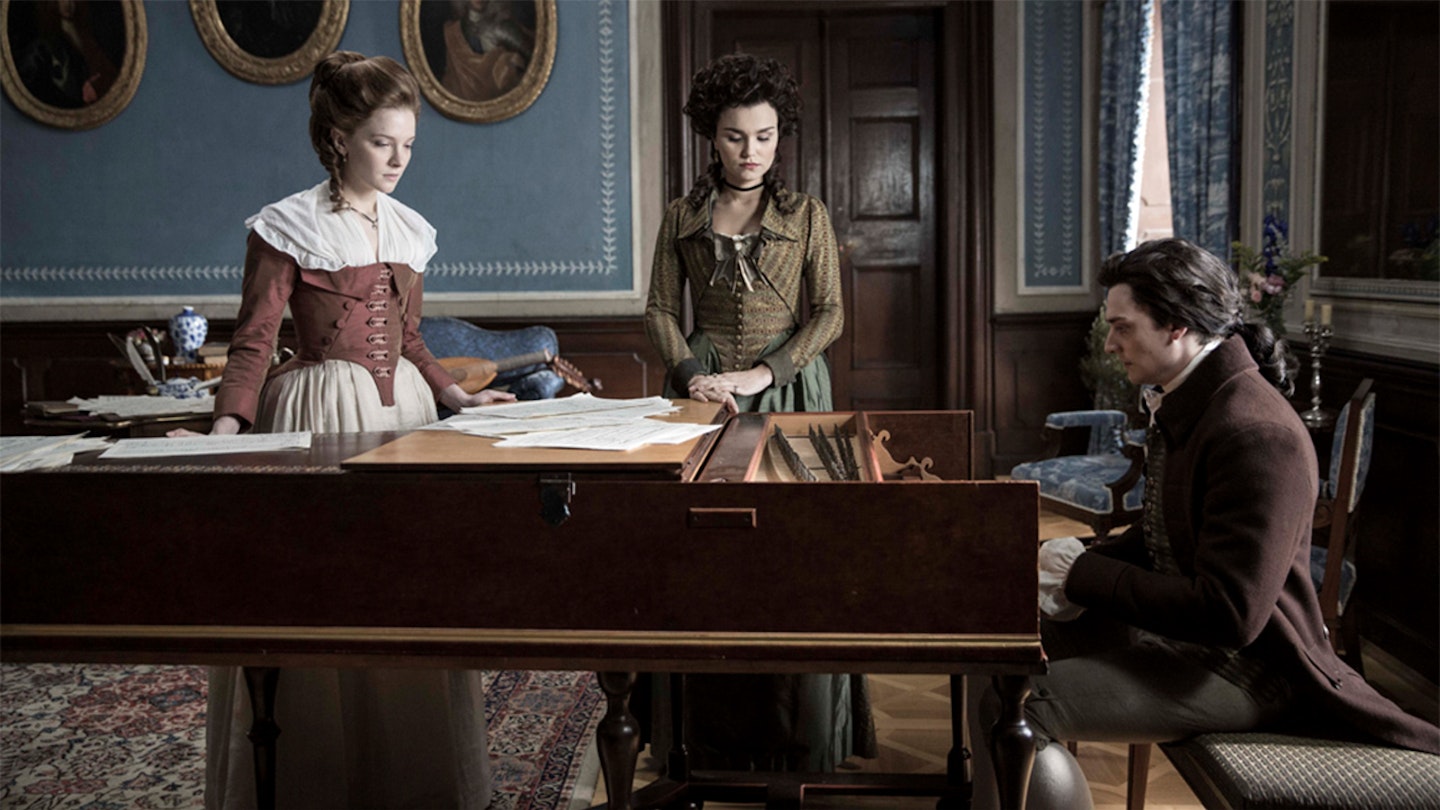The life of Mozart is rich territory for a screenwriter, though this drama’s story is largely an invention, despite taking place during the time he spent in the Czech city. There, Mozart (Aneurin Barnard) is the toast of the town: everyone loves him, from servants to their masters and mistresses (especially the latter). Everyone, except — drum roll — the dastardly Baron Saloka (James Purefoy), who is seething by the sidelines while everyone raves about this talented and handsome young musician. In this respect, he’s an awful lot like F. Murray Abraham’s Antonio Salieri in 1984’s Amadeus — but where Salieri was an envious composer, Saloka is a sociopath who craves the limelight and the company of all the local women, regardless of consent. The more Mozart begins to spend time with the lovely Zuzanna (Morfydd Clark), the more enraged and hideous Saloka becomes, putting the story on the path to its dramatic conclusion.
Rarely anything surprising, witty or engaging about the dialogue.
British director John Stephenson (Five Children And It) has been quoted describing this as a ‘heart in mouth thriller’, but the end result feels rather more staid and plodding. There’s an initial implication that something will go wrong at some stage, but very little tension leading up to the fact. At this time, Mozart is a married man. History tells us didn’t end up with someone called Zuzanna Lubtak, so there goes the tension in their romance. And Baron Saloka is an out-and-out villain from the outset, so there’s no moral dilemma to wrestle with when it comes to Zuzanna’s potential engagement. Everything about the Baron is writ large, from Purefoy’s dramatic pauses and devious frowns to his attempts to rape every woman he has the opportunity to be alone with. There’s some sociological interest in the period detail here — women unwillingly submit to him for fear of his social position — but there’s also a dubious scene in which a woman, bruised by his previous attack, appears to enjoy their next encounter. It's also unclear why Mozart is framed as a romantic hero while his wife, newly bereaved having lost a child, is away nursing her grief in a spa.

Interlude In Prague succeeds on a couple of levels: setting and performances. Shot entirely in Prague, although within a limited budget, it showcases some of the city's gothic beauty. The costumes are pleasing, and if the make-up seems rather modern — sculpted eyebrows rather than ruddy cheek blush — one can assume that's a concession to modern-day viewers. Barnard is a sweet, if underwritten Mozart, while as his friend and singer, Samantha Barks' vocal talents are well used in the performance scenes, of which there are enough to please classical music fans. Some of the casting feels a bit familiar: Clark's character was in danger of being married off to the wrong man in Love & Friendship (lines like, 'But mama, we are not poor' sound awfully familiar in her voice). And Adrian Edmonson, who plays her well-meaning father, played a similar role as Count Ilya in TV's War & Peace.
All these actors do a good job, but they're underserved by a script that all too often feels perfunctory and expositionary. There's rarely anything surprising, witty or engaging about the dialogue and the occasional attempt at comic timing is as mannered as the tittle-tattle at the grand ball.
